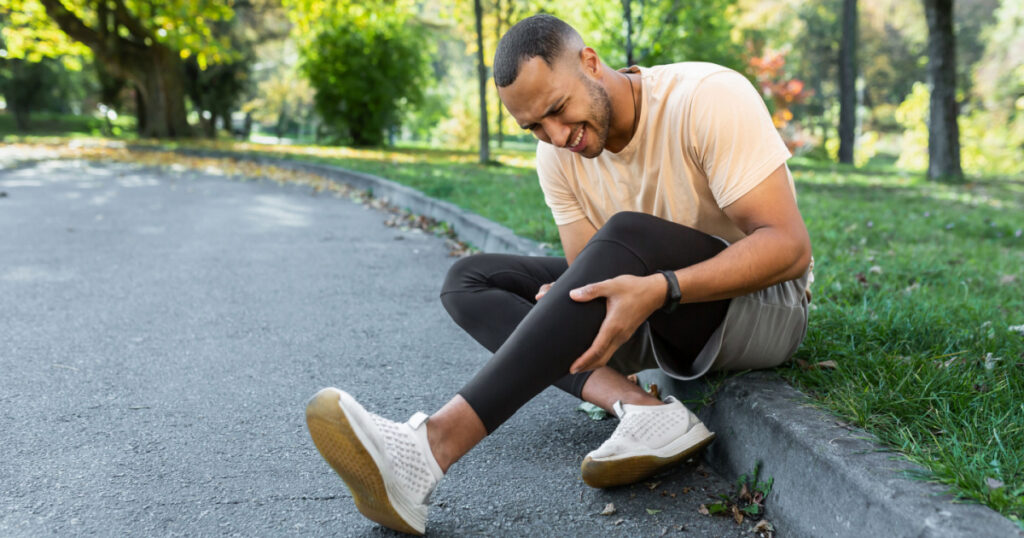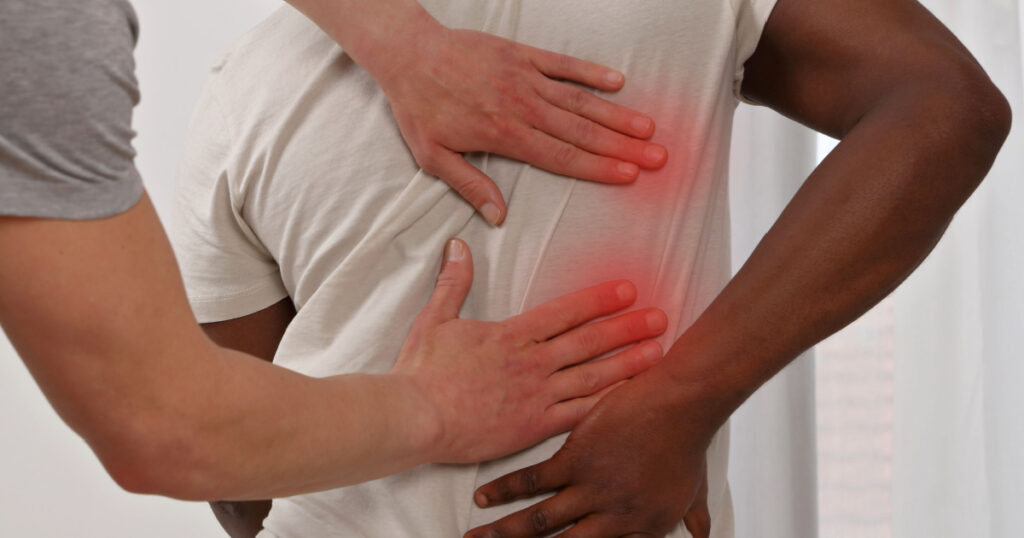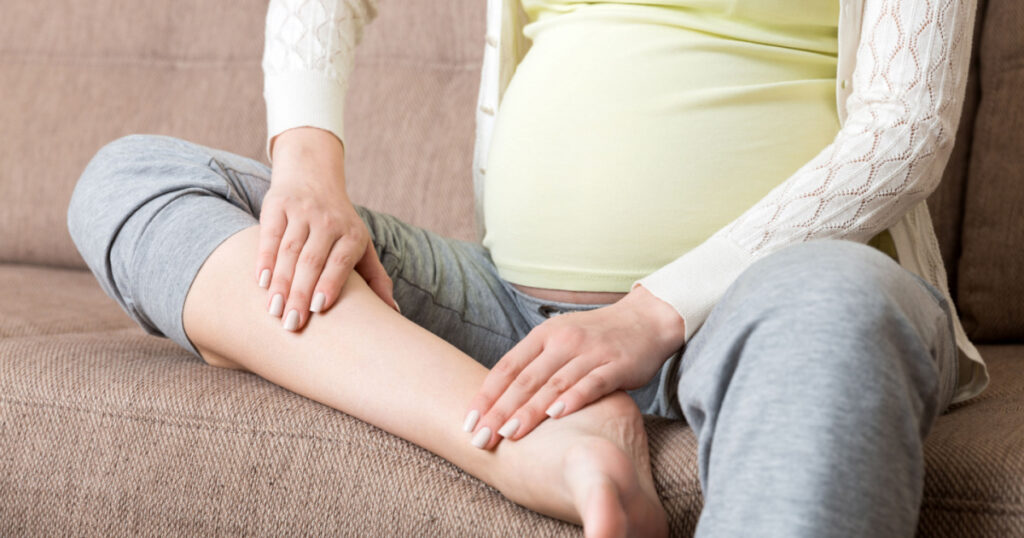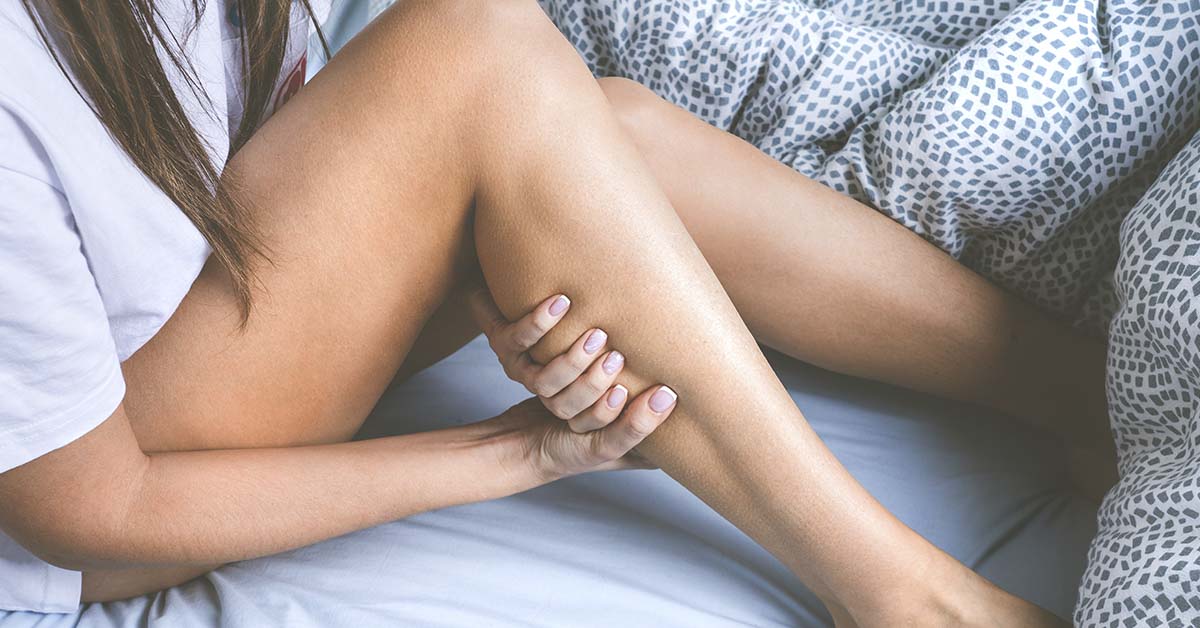Muscle cramps, specifically leg cramps, can be an uncomfortable and painful experience, especially when they occur at night. Leg cramps at night, also known as nocturnal leg cramps, can disrupt sleep and affect the overall quality of life. Let’s discuss the causes of leg cramps at night and explore various methods to alleviate and prevent them.
What are Leg Cramps?
Muscle cramps are involuntary contractions or spasms of one or more muscles. They can occur in any muscle, but leg cramps are particularly common. These cramps can vary in intensity and duration, causing mild discomfort or severe pain that lasts for several minutes. Most often, they happen when we sleep at night, waking us up in an incredibly jarring, painful way. The first step to figuring out how to stop them from happening, of course, is to understand why we get leg cramps in the first place. (1, 2)
Read: Why Up to 80% of Us are Deficient in Magnesium
Causes of Leg Cramps at Night

Leg cramps are possibly the worst way to be woken up in the middle of the night. They are incredibly painful, and you will often still feel the effects the next morning, even after the muscles have long since settled down. If you experience leg cramps, either regularly or from time to time, here are some potential reasons why:
1. Dehydration

Lack of proper hydration can lead to an electrolyte imbalance, triggering leg cramps during sleep.
2. Mineral Deficiencies

Shortages of essential minerals such as potassium, calcium, and magnesium can contribute to muscle cramps.
Read: 8 Signs of Potassium Deficiency
3. Overexertion

Overworking or straining muscles through excessive physical activity or exercising can lead to leg cramps at night.
4. Improper Sitting or Standing Posture

Poor posture, especially with prolonged sitting or standing, can strain leg muscles and result in cramping.
5. Nerve Compression

Nerves in the legs can become compressed or pinched due to conditions like sciatica or herniated discs, leading to cramps.
6. Pregnancy

Pregnant women often experience leg cramps at night due to increased pressure on blood vessels and changes in hormone levels.
7. Medications

Certain medications like diuretics, statins, or antipsychotics may have side effects that include muscle cramps.
8. Alcohol Consumption

Excessive alcohol consumption can lead to muscle dehydration and mineral imbalances, increasing the risk of leg cramps.
Read: What Happens To Your Body When You Quit Alcohol For 30 Days?
9. Medical Conditions

Certain medical conditions such as diabetes, kidney disease, thyroid disorders, and peripheral artery disease can contribute to leg cramps.
10. Age

Older adults are more prone to leg cramps due to muscle loss, reduced mobility, and decreased circulation.
Read: 9 Reasons Your Toes Cramp and How to Deal With Them
Standard Treatment for Leg Cramps
Standard treatment for leg cramps primarily focuses on relieving the immediate pain and discomfort. Here are some commonly recommended methods:
- Stretching and Massaging: Gently stretching and massaging the affected muscle can help relax it and relieve cramping.
- Applying Heat or Cold: Applying a heating pad or taking a warm bath can increase blood flow and relax the muscles. Alternatively, using a cold pack can numb the area and reduce inflammation.
- Pain Relievers: Over-the-counter pain relievers like ibuprofen or acetaminophen can help alleviate pain temporarily.
- Hydration: Proper hydration is essential to maintain electrolyte balance and prevent muscle cramps.
- Exercise and Physical Therapy: Regular exercise, particularly stretching and strengthening exercises, can prevent muscle cramps over time.
- Medications: In severe cases, a doctor may prescribe muscle relaxants or medications to address underlying medical conditions contributing to leg cramps.
Home Remedies and Supplements
In addition to standard treatments, several home remedies and supplements may help prevent and alleviate leg cramps:
- Increase Magnesium Intake: Magnesium deficiency is a known cause of muscle cramps, including leg cramps. Consuming magnesium-rich foods like bananas, dark leafy greens, nuts, and seeds can be beneficial. Additionally, magnesium supplements in powder or capsule form can provide a convenient option. (3)
- Stretch and Massage Regularly: Performing leg stretches and gentle massages before bed can help relax the muscles and prevent cramping during the night.
- Stay Active: Regular physical activity, such as walking or cycling, promotes healthy blood circulation and reduces the risk of leg cramps.
- Warm Up and Cool Down: Properly warming up and cooling down before and after exercise can prevent muscle fatigue and cramping.
- Adjust Sleeping Positions: Experimenting with different sleeping positions and using pillows to elevate your legs can alleviate pressure on leg muscles and reduce leg cramps at night.
- Apply Essential Oils: Topical application of essential oils such as lavender or peppermint can provide relaxation and relieve muscle tension.
It’s important to consult with a healthcare professional before starting any new supplements or home remedies, especially if you have any underlying medical conditions or are taking other medications.
The Bottom Line
Leg cramps at night can significantly impact sleep and overall well-being. By understanding the causes and implementing various preventive measures, individuals can effectively manage and reduce the occurrence of leg cramps. From maintaining proper hydration to incorporating magnesium-rich foods or supplements, multiple avenues exist to explore for relief. With a combination of lifestyle changes, standard treatments, and home remedies, individuals can find the best approach to alleviate and prevent leg cramps at night.
Keep Reading: If Your Kidneys Are in Danger, the Body Will Show these 10 Signs
Sources
- “14 Causes of Legs Cramps at Night and How to Prevent Them, According to Experts.” Prevention. Markham Heid. August 21, 2023.
- “Muscle cramp.” Mayo Clinic
- “What to Know About Magnesium and Your Leg Cramps.” Healthline. Marjorie Hecht. July 8, 2019

